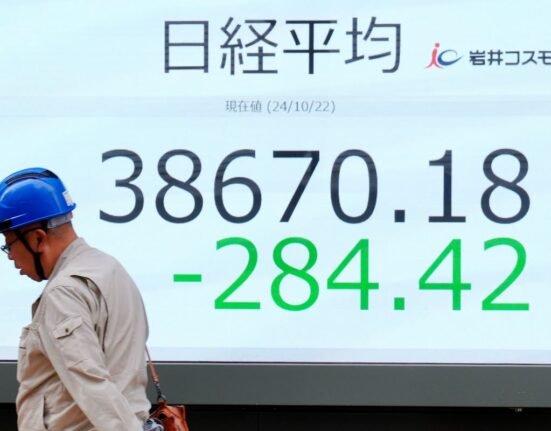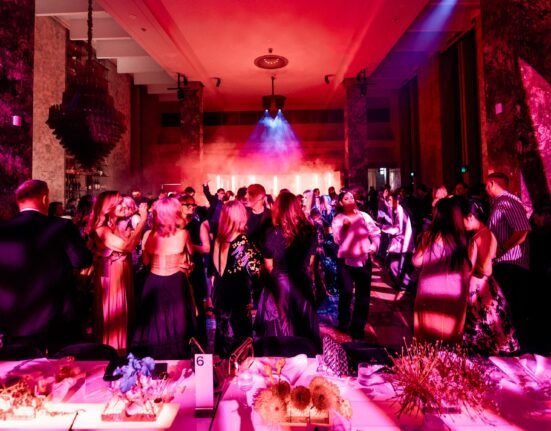From the earliest days of the Women’s National Basketball Association, it seemed like winning a championship was only a matter of time for the New York Liberty. A glamour franchise by default, they first reached the doorstep of a title during the league’s inaugural season back in 1997, falling to the Houston Comets in a championship game that was attended by a robust crowd of 16,285 but wiped from the headlines within hours by the death of Diana, Princess of Wales. That was the first of five times New York tripped at the final hurdle, including last season’s crushing defeat to the Las Vegas Aces on their home floor. As the years became decades, much like their longtime Madison Square Garden co-tenants, coming up short became the Liberty’s brand despite a parade of name-brand stars like Rebecca Lobo, Teresa Weatherspoon, Becky Hammon, Cappie Pondexter and Tina Charles.
That’s one way of saying that Sunday night’s cathartic triumph, when New York finally hauled in the sport’s biggest prize with a heart-stopping overtime win over the Minnesota Lynx and became the last of the WNBA’s Original Eight teams to win a title, was a long time coming. But as the confetti rained down inside the Barclays Center while Ellie the Elephant twerked away to Empire State of Mind amid the roars of 18,800 spectators, it was easy to forget just how down bad the Liberty were under their previous caretakers – and how extraordinary the ensuing turnaround has been.
Six years ago when the club was still the property of a wannabe rock star indifferent to women’s basketball, the Liberty languished in what could be described as a state of hostile neglect. When James L Dolan couldn’t immediately find a buyer after putting the Liberty up for sale in November 2017, the team found themselves banished to the Westchester County Center in White Plains, roughly 30 miles outside Manhattan. Suddenly a team that consistently ranked near the top of the league in home attendance even in down years was playing their games in a rickety 5,000-seater constructed before the Great Depression. Predictably, average attendance plummeted below 2,200 while the team finished next to bottom of the standings with a dismal 7-27 record.
Organizational morale was at rock bottom when Joe and Clara Wu Tsai bought what they saw as an undervalued asset for an undisclosed amount in 2019, but things changed rapidly under their ownership. Moving the team to the Barclays Center, which the Tsais took over with their purchase of the NBA’s Brooklyn Nets, was a no-brainer. Seizing on changes to the 2020 collective bargaining agreement that relaxed restrictions on player movement, Wu Tsai tracked star free agent and serial winner Breanna Stewart down to a yacht in Turkey to make a recruiting pitch. The Liberty went on to sign the two-time WNBA finals MVP and All-Star point guard Courtney Vandersloot as free agents, and traded for former MVP Jonquel Jones, to join a young core led by former No 1 draft pick Sabrina Ionescu and Betnijah Laney-Hamilton. That newly formed superteam came two wins short of a title in their first year before going all the way on Sunday night. More importantly, Liberty games have become a legitimate Brooklyn happening, a shift that can be seen everywhere from surges in attendance, ticket revenue and corporate sponsorships to their zeitgeist-crashing viral mascot, who has more followers across social media than nearly half of the roster.
“When we bought the team four years ago, they were playing at Westchester County Center to a crowd of 2,000,” Wu Tsai said during Sunday’s trophy presentation. “And the first thing we wanted to do was bring the team to Barclays Center so that they could have a bigger stage. And then we wanted to give them facilities and performance and nutrition and everything that they deserved because they’re such elite professional athletes.”
Liberty owner Clara Wu Tsai on the franchise’s first WNBA championship:
“When we bought the team four years ago, they were playing at Westchester County Center to a crowd of 2000. And the first thing we wanted to do was bring the team to Barclays Center so that they could have a… pic.twitter.com/Ct3PnUJeVQ
— Erik Slater (@erikslater_) October 21, 2024
That smart ownership and strategic investment corresponds to positive outcomes is not exactly news, but the WNBA has offered a unique proving ground for the concept. Consider the aforementioned Aces, the two-time defending champions who were dethroned by New York in this year’s semi-finals. Yes, Las Vegas have basketball’s finest core four in A’ja Wilson, Chelsea Gray, Jackie Young and Kelsey Plum. But owner Mark Davis has spared no expense in helping them max out their potential by cultivating an organizational culture that ranks alongside Olympique Lyonnais Féminin as the gold standard in women’s sports.
Since purchasing the Aces nearly three years ago, the owner of the NFL’s Las Vegas Raiders poached Becky Hammon from the NBA on a record $1m-a-year contract and spent $40m on an 80,000 sq ft state-of-the-art practice space that is the first women-specific, unshared training facility in WNBA history. The results speak for themselves.
Same for the Seattle Storm, who have won two of the past seven WNBA titles and also recently opened a $60m, 50,000 sq ft training facility, among the world’s first to be designed specifically for female athletes (famously without a single urinal on the premises). It’s a far cry from the WNBA teams who once practiced in public recreation centers.
It’s the kind of culture-building which translates to success between the lines. Look no further than Sunday night’s dramatic clincher when the Liberty’s two Olympic gold medalists spent most of the night firing blanks on the offensive end: Ionescu made just one of her 19 attempts from the floor while Stewart didn’t fare much better. When it came down to winning time, it was role players like sparkplug Nyara Sabally and German rookie Leonie Fiebich who hit their marks and made the difference. Once and for all, the Liberty were no longer a slapdash collection of galácticos but a winning team.
It was a worthy climax to a WNBA season that attracted vast television audiences and unprecedented public interest, breaking records for TV ratings, merchandise sales and attendance seemingly by the week. But it was also a road map to success. Less than five years after buying the Liberty at a distress-sale price, the Tsais’ recent sale of a 15% stake in BSE Global gave the Liberty a $200m valuation. Earlier this month Wu Tsai predicted that number will exceed $1bn within 10 years. The notion of women’s sports as a social cause have long since passed. It’s simply good business.







